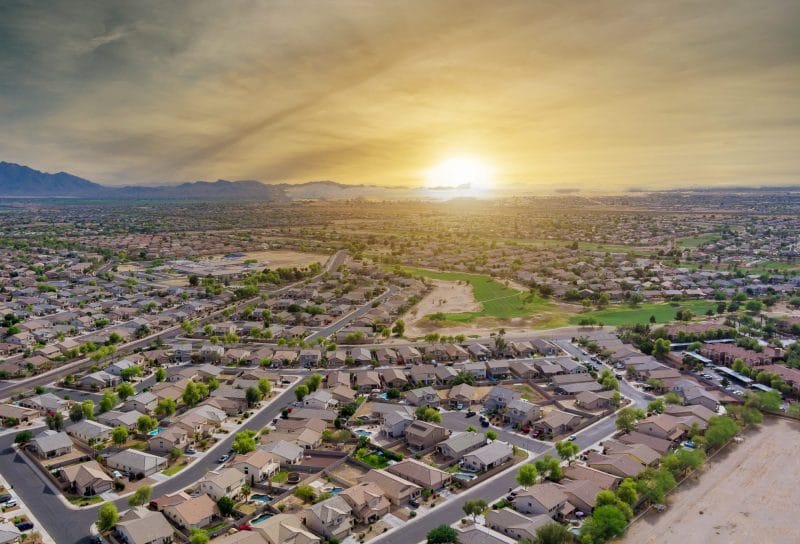
By Wissam Melhem | Cronkite News Service via Arizona Mirror
Congress returned this week from a two-week recess, a time when lawmakers can go home and meet with voters – except that many of them don’t.
A report by the Town Hall Project found that Arizona lawmakers have held just 28 town halls so far this year – and 19 of those were held by Rep. Tom O’Halleran, D-Sedona.
Neither of the state’s senators have had a town hall this year and no Republicans in the state’s House delegation had done so, with Arizona joining Missouri as the only states where no Republicans had a single meeting.
Town Hall Project Executive Director Nathan Williams said there is a general disparity between Republicans and Democrats on the national level, but said he finds Arizona’s one-sidedness unusual.
“That’s unfortunate… We don’t see this as a partisan issue,” Williams said. “There shouldn’t be anything inherently conservative or progressive about meeting your constituents.”
Requests for comment from delegation members were not returned. But with the 2020 elections around the corner, challengers across Arizona were quick to turn the lack of town halls held by incumbents into a campaign talking point.
In Peoria, Democratic hopeful Michael Muscato invited Republican Rep. Debbie Lesko to a town hall. Lesko did not show up, proof that she and other Republicans are “scared” of face-to-face events where they can be held accountable by voters, Muscato said.
“I think the main word is accountability,” he said. “With Debbie Lesko in particular, she has a history of over 12 years as a representative (in the state legislature and Congress) of saying one thing and doing another.”
The Town Hall Project said Lesko has not held a single town hall since she took office in 2018. She and other GOP delegation members were more likely to host telephone town halls, which they have defended in the past as allowing a larger number of people to participate in the conversation.
One reason for their reluctance may be the hostility some lawmakers faced in the months after President Donald Trump took office. After Rep. Andy Biggs, R-Gilbert, was repeatedly booed at his last town hall in April 2017, he turned to telephone town halls – a method Rep. Paul Gosar, R-Prescott, also uses.
Sen. Martha McSally, R-Ariz., was still a House member when she attended her last town hall in February 2017. She originally declined to attend what she said would be “about trapping people in a political ambush for political theater,” but later agreed to the event hosted by liberal-leaning groups – only to be berated for her statements over the course of the night.
David Barker, director of American University’s Center for Congressional and Presidential Studies, said Arizona could be a swing state in 2020, and with Trump under a microscope, state Republicans want to avoid having to defend or denounce his actions in front of a crowd.
“They’re going to potentially put you in a really difficult position of having to go on record there and either doubling down on your support for Trump, which might anger independent or swing voters you might need,” he said. “Or you’re going to have to voice your displeasure with Trump, which for a lot of these people could also spell doom.”
Arizona lagged, but the number of town halls held nationally by members of Congress actually rose to 2,106 events this year, up from 995 at the same point last year and 1,681 town halls as of fall 2017. Williams believes this year’s rise may be due to the number of freshmen in Congress, who hosted more than a third of this year’s town halls.

The Town Hall Project only counts events held within a lawmaker’s district that is free and open to the public, announced at least 24 hours in advance, and has an open question-and-answer session. It does not include site visits to businesses or schools, and it does not include meetings on social media or by telephone.
Unlike face-to-face meetings, “it is very common for questions to be screened at these telephone town halls,” Williams said. “It is very easy to pick and choose the questions you want to answer and the people you want to answer.”
Democrat Anita Malik invited Rep. David Schweikert, R-Fountain Hills, to a town hall in September that he did not attend. She said she was not surprised, as she said Schweikert has not hosted a town hall in his district in years.
Malik said Republicans argue that town halls lead to more divisiveness among voters, but she accuses Schweikert, currently the subject of a House Ethics Committee investigation, of just trying to “stay under the radar.”
“They just wanted a platform to speak those words and feel like someone is paying attention,” she said of the people who turned out for her town hall.
Malik said it may not be fun to face critics and tough questions, but it is an essential duty of a representative’s job to listen to constituents – regardless of their views.
Muscato agreed, saying younger voters are seeking more transparency from their representatives than ever before.“If we can’t do the most simple and commonsense representation, which is to simply listen in a public setting, then we don’t have representation, he said.




